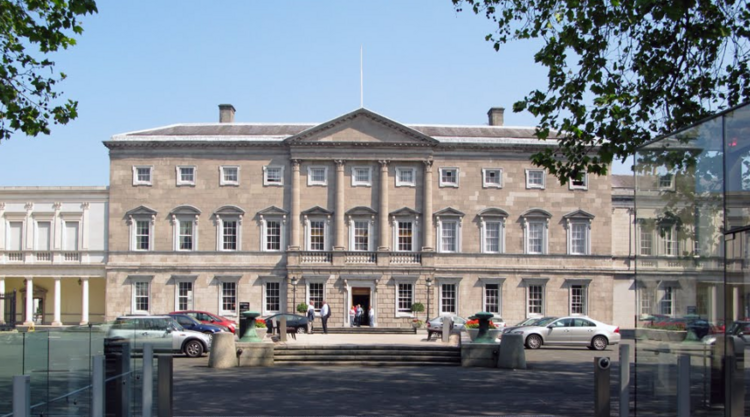Not surprisingly, Ireland has failed to put into place a new government today, two weeks since the inconclusive general election was held.
While not surprising, it wasn’t unexpected, either: since neither major political party—Fine Gael (the incumbent governing party) and Fianna Fáil (the historic opposition political party)—won the necessary majority (out of 166 seats) to form the new government, the main political task at hand was to find a way to construct a governing coalition of like-minded parties. Given that the two major parties, along with the 3rd biggest, Sinn Féin, have vowed not to enter into a coalition with any of the others, this made the formation of a workable government improbable, almost impossible—which is what happened today. If some kind of an arrangement is not made within the next few weeks, a new general election will have to be called in order to straighten out the electoral impasse.
The fact that a new government could not come into being at this time shows how serious the political fractiousness has become in Ireland. And it comes at a most inopportune time, with the St. Patrick’s Day celebrations and the Easter Rising commemorations just around the corner, not to mention various matters that need to be attended to by a government, such as the water bill imbroglio and the creation of a new budget.
The general election resulted in Fine Gael winning 50 seats while Fianna Fáil won 44, and Sinn Féin with 23, with the rest given to parties scattered all over the political map. The only election the newly elected parliamentary members could decide on was that of House Speaker or, as in is known in Gaelic, Ceann Comhairle, and he is Fianna Fáil Deputy Seán Ó Fearghaíl of County Kildare. He will be the Speaker of the 32nd Dáil, replacing outgoing Fine Gael Deputy Seán Barrett of Dublin.
For now, Taoiseach Enda Kenny will continue for the time being to be the head of government. Since he failed to gain the necessary votes to remain in office, he has announced his intention to offer his resignation to Michael D. Higgins, the President of Ireland, as is customary. He will be a caretaker Prime Minister until such time a new government is in place. (While he may have lost his position as Taoiseach, he will still be a member of the Irish government: he was reelected to his parliamentary seat as a member for his home county of Mayo.) As such, he will be travelling to Washington next week to attend the St. Patrick’s Day celebrations at the White House and the Capitol, a visit that will most likely be Mr. Kenny’s last as Ireland’s leader.
Things are quite unsettled this year in the British Isles; those island nations of Ireland and Britain have unchartered waters to sail through, with Ireland looking for a new government and Britain trying to figure out whether to stay in the European Community or stage a very public “Brexit.” And a century after Ireland rose up in defiance against British hegemony to claim her rightful independence, it finds itself uncertain and unsure. Likewise, Britain is undergoing an identity crisis as it never known before and both countries find themselves at the abyss of an unknowable—and perhaps unworkable—future. Only one thing can be said for certain and that is that neither country expected the year 2016 to unfold in the way that it has.








